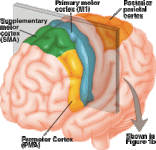So possibly more than cells are involved
For instance? I don't think I've heard you explain what you think consciousness is or how it arises.
At this point I can only speculate as to what kind of things it might be.
It might be a cellular effect, some effect of cellular activity.
It might be some electrical effect, the effect of an electric current running in a certain pattern, possibly through some kind of biological switches. This is probably the most likely answer IMO. Since we can see with computer chips what kinds of things can be done by running current through switches.
It might be a magnetic effect of some kind, possibly involving the flow of electric current and the flow of iron in the blood.
It might be some unknown quantum effect.
It might be some other effect I am not even considering.
It might be a combination of two or more effects.
I can only speculate at this point what it might be. I have no idea what it is objectively.

